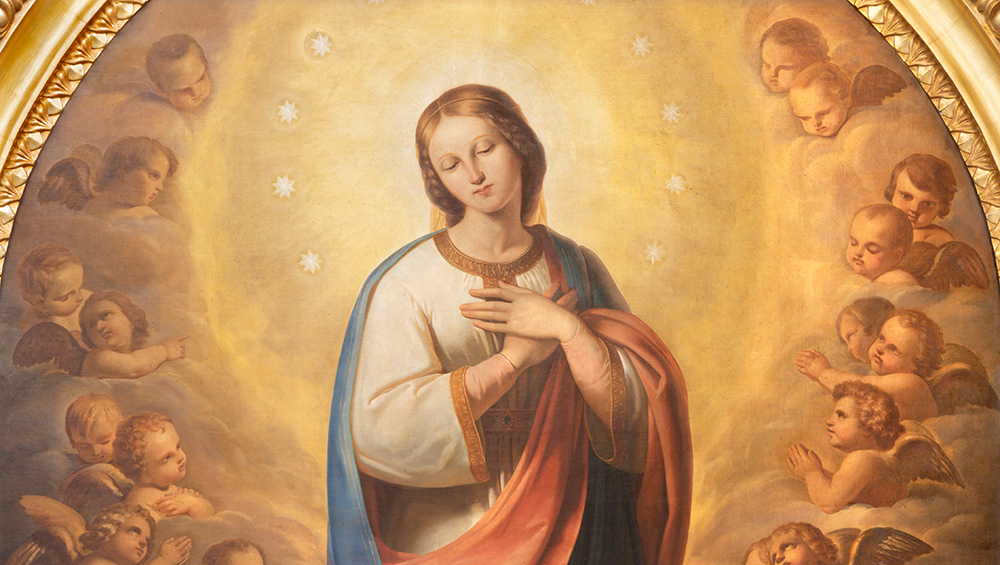There is usually a good deal of confusion regarding the obligation to attend Mass related the solemnity of Mary’s Immaculate Conception. That’s due to some complex laws governing the liturgical calendar and the obligation for Catholics in the United States to attend Mass on certain dates.
The confusion exists primarily because the obligation to attend Mass is handled differently for some holy days of obligation in the United States than it is for the solemnity of the Immaculate Conception.
While the obligation to attend Mass is lifted in the United States when the date for certain holy days fall on a Saturday or Monday (i.e., January 1, the solemnity of Mary, Mother of God; August 15, the solemnity of the assumption of the Blessed Virgin Mary and November 1, the solemnity of All Saints), such is not the case for Dec. 8, the solemnity honoring Mary’s Immaculate Conception. That solemnity is the patronal feast for the United States and the U.S. bishops have not extended the aforementioned exception to it. So in the United States, Catholics are obliged to attend Mass marking Mary’s Immaculate Conception no matter on what day of the week Dec. 8 falls — even a Saturday or Monday.
But there’s a hitch.
Further confusion exists when Dec. 8 falls on a Sunday, as it does this year. When that happens, Catholics might look at the liturgical calendar to find the solemnity of the Immaculate Conception celebrated on Dec. 9. Does that mean you have to attend Mass on that date? No. And here’s why.
According to the Church’s canon law, the obligation to attend Mass is fixed to a date, not necessarily when the particular feast is liturgically celebrated.
So, when Dec. 8 falls on a Sunday, the obligation to attend Mass on that date coexists with the obligation to attend Mass on Sunday. In this case, Dec. 8 is one of the Sundays of Advent, which take liturgical precedence over anything else on the liturgical calendar. Since the Church never wants to omit the liturgical celebration of the solemnity of the Immaculate Conception of the Blessed Virgin Mary, it is transferred to Dec. 9. The obligation, however, is not transferred to the temporarily given date for the celebration.
So, yes, Dec. 8 is always a holy day of obligation for Catholics in the United States — in conjunction with Mary’s Immaculate Conception. But when that date falls on a Sunday, even though the liturgical celebration of the Immaculate Conception is transferred to the next day, the obligation is not reassigned.
Still, there is no better way than the Mass to give thanks to God for the prevenient grace he bestowed on Mary in preparation for the birth of our redeemer. And so you might consider going to Mass still on Dec. 9 to thank God for this great gift he bestowed on all humanity in honoring the Blessed Mother with this privilege.
Michael R. Heinlein is editor of Simply Catholic. Follow him on Twitter @HeinleinMichael.

